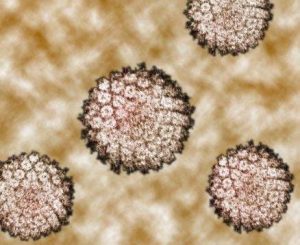A group of ground-breaking Newcastle scientists have received a £5 million grant to look at ways of tackling cancers that afflict children and young people.
The grant – from Cancer Research UK – will be split between three teams based at the Cancer Research Newcastle Centre.
One cancer that the grant will finance research into is childhood acute lymphoblastic leukaemia (ALL), a type of blood cancer that is most common in children aged between 0 and 4.
Though the treatments currently available for ALL are usually successful, they don’t work for all children and they have side-effects that can affect the patients later in life. Scientists plan to use the grant money to investigate different drug combinations, which they hope will boost survival rates and have fewer side effects.
Professor Josef Vormoor, a researcher who specialises in ALL, said, “There are children with ALL who do not respond to treatment, so we need to develop more options for them. And current treatments have side-effects that can have consequences decades later.”
“That is why we want and need to find new, better and kinder treatments for children diagnosed with cancer – so they can survive their cancer and do so with a good quality of life.”
In addition to looking at different combinations of drugs, the scientists will use techniques that involve making small changes to the DNA of cells. This will help them understand the biology of ALL cancer cells and give them insights into how these cells survive.
By pinpointing vulnerabilities in these cells, the team hope to discover new ways of treating the disease.
Professor Vormoor said, “By understanding the vulnerabilities in ALL cancer cells, we aim to develop and use drugs that specifically target and kill them.”

Another team that will benefit from the Cancer Research grant is studying medulloblastoma, which is the most common aggressive brain tumour in children.
This team will look at samples from patients to try to find biological ‘fingerprints’ within tumours to help them understand what type of treatment a patient should receive and how well they may respond to it.
A third team is investigating liver cancer. A member of this team, Dr Helen Reeves, said, “In the UK deaths from liver cancer, unlike other cancers, are rising markedly. The treatments we have right now don’t work very well, partly because the amount of drug needed to kill cancer cells damage the liver and cause liver failure.”
The team hope their research can develop targeted, safer drugs that help a person’s own immune system fight the cancer without damaging the liver.
Professor Vormoor said, “We have been able to establish strong research teams here in Newcastle and we have some of the best childhood cancer research teams in Europe.”
“Funding such as this latest investment from Cancer Research enables this work to continue and drives our ideas forward. Without funding like this, we couldn’t make advances and develop new treatments.”
The Cancer Research UK spokesperson for the north east, Lisa Millet, said, “This award is recognition of the fantastic research taking place in Newcastle.”
“One in two of us will be diagnosed with cancer at some stage in our lives, but the good news is more people are surviving the disease now than ever before.”
“Cancer survival in the UK has doubled since the early 1970s and Cancer Research UK’s work has been at the heart of that progress.”
(Featured image courtesy of AJC1, from Flickr Creative Commons)




















